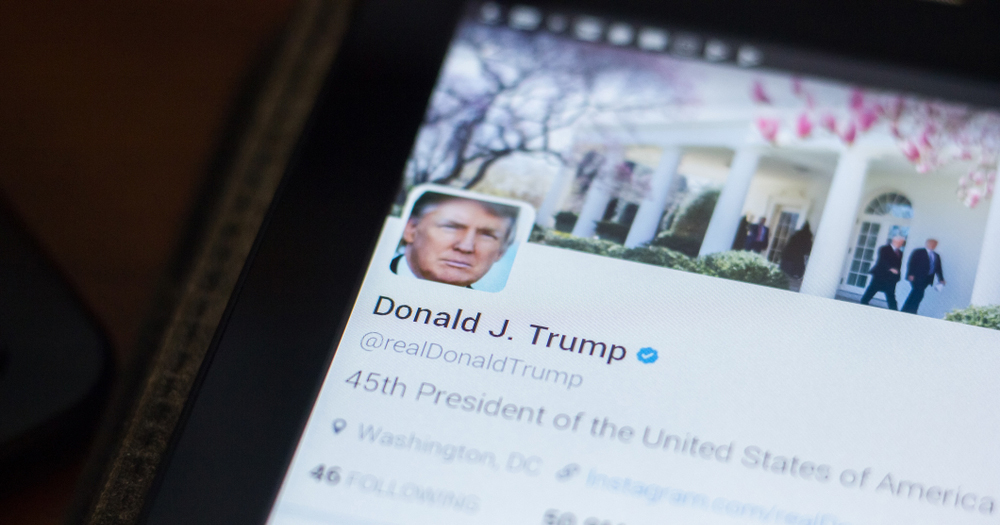Trump's blocking of Twitter critics violates First Amendment, 2nd Circuit rules

Image from Shutterstock.com.
President Donald Trump engaged in unconstitutional viewpoint discrimination by blocking critics from his Twitter account based on their views, a federal appeals court ruled Tuesday.
The 2nd U.S. Circuit Court of Appeals at New York upheld a federal judge’s First Amendment decision. The New York Times, the Washington Post and BuzzFeed News have coverage.
The 2nd Circuit found that interactive space in Trump’s account is a public forum, and exclusion from the space was viewpoint discrimination that violated the First Amendment. Trump tweets using the handle @realDonaldTrump.
According to the 2nd Circuit opinion, Trump’s Twitter account and its associated webpage “bear all the trappings of an official, state‐run accounct.” Trump uses the account to announce, describe and defend his policies, and to announce official decisions. The National Archives and Records Administration considers Trump’s tweets to be official records that must be preserved.
The government conceded at oral argument that the Twitter account is not independent of the presidency but argued that blocking was not state action. The 2nd Circuit disagreed, citing “overwhelming” evidence that the account served a public function.
“Because the president, as we have seen, acts in an official capacity when he tweets, we conclude that he acts in the same capacity when he blocks those who disagree with him,” according to the opinion by Judge Barrington Parker Jr.
The government also argued that blocking individuals was government speech that did not violate the First Amendment. The 2nd Circuit disagreed, citing the interactive features that make the speech on Trump’s Twitter account the speech of multiple individuals.
The 2nd Circuit said its opinion didn’t consider whether a public official violates the Constitution by excluding people from a wholly private social media account, or whether private social media companies are bound by the First Amendment when policing their platforms.
Parker noted that it was a deciding the case at a time “when the conduct of our government and its officials is subject to wide-open, robust debate,” generating “a level of passion and intensity the likes of which have rarely been seen.” The debate can be a good thing, Parker said.
“In resolving this appeal,” Parker wrote, “we remind the litigants and the public that if the First Amendment means anything, it means that the best response to disfavored speech on matters of public concern is more speech, not less.”
Also joining the opinion were Judges Peter Hall and Christopher Droney.
One of the plaintiffs in the suit against Trump was the Knight First Amendment Institute at Columbia University. The group’s executive director, Jameel Jaffer, argued the case before the 2nd Circuit in March. Several other plaintiffs were people who had been blocked by Trump.
“Public officials’ social media accounts are now among the most significant forums for discussion of government policy,” Jaffer said in a press release. “This decision will ensure that people aren’t excluded from these forums simply because of their viewpoints, and that public officials aren’t insulated from their constituents’ criticism.”
The 2nd Circuit is the second federal appeals court to hold that a public official’s social media account can sometimes be a public forum under the First Amendment, according to the Knight First Amendment institute. Earlier this year, in a case also argued by the Knight Institute, the 4th U.S. Circuit Court of Appeals at Richmond, Virginia, ruled for a Virginia resident temporarily blocked from the Facebook page of a local official.
Write a letter to the editor, share a story tip or update, or report an error.


